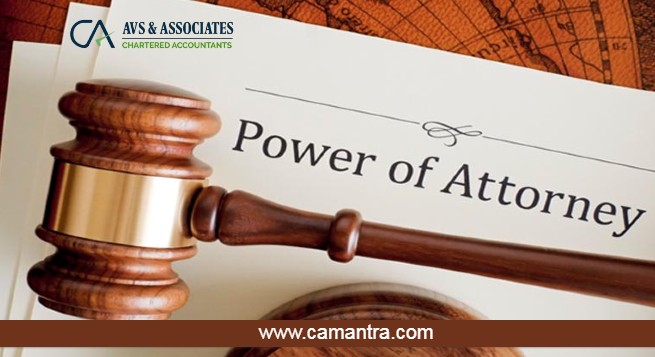A “POA” is abbreviated form of power of attorney which is a legal document that allows you to appoint another person to take control of your affairs. ‘Power Of Attorney’ is an authority given by donor or principal to donee or agent to act on his/her behalf.
Legal authority is given by the principal to the agent which may be broad or limited and an agent can take all essential decision which are financial, property related matters and all other matters where principal cannot make his/her presence to sign or in the case of principal’s illness and disability. Sometimes, a paper signed by principal giving powers to an agent is itself called a power of attorney.
You can use a POAto plan for the future, or manage your day-to-day life when you can’t be present to sign paperwork.
- Power of attorney can give broad or specific powers (think of the difference like managing all your accounts versus cashing individual checks).
- Power of attorney can stop when you become incapacitated and can’t make your own decisions, or continue after (depending on how you want to use it).
Who Should Use It?
Usually Power of Attorney is created by anyone who cannot do the transactions in person by himself/ herself due to different reasons. The following are the reasons that commonly force an individual to give the POA to another person.
- Residing abroad and unable to be present for the task
- Illness and bedridden
- Old age or senior citizens with health problems
- Any other reason for being unable to conduct the transactions personally
Different Types of Power of Attorney
There are many types of powers of attorney and the choosing he type of power of attorney depends on the requirements of your current situation.
These are the classifications of power of attorney:-
- Durable Power of Attorney
A durable power of attorney is effective instantly after you sign it (unless stated otherwise), and allows your agent to continue acting on your behalf if you become incapacitated. A DPOA ends automatically when you die. Using a revocation of power of attorney form you can end a durable POA as long as you are competent.
Non-Durable Power of Attorney
If you become incapacitated or die then a non-durable power of attorney expires. For example, if you fall into a coma, your agents will lose any authority previously granted. After that, only court-appointed guardian will be able to make decisions for you.
2. Medical Power of Attorney
A medical power of attorney is also known as advance directive, allows you to name a health care agent — someone who will make medical decisions for you if you cannot do so yourself. Additionally, to a broad range of health care decisions, your agent will have authority over you:
- Medical Treatment and Surgical Procedures
- Artificial Hydration And Nutrition
- Organ Donation
- Choice Of Health Care Facilities
- Release Of Medical Records
Your agent will also taking care and ensure that your health care providers give you the medical care specified in your Do Not Resuscitate (DNR Form).
A medical power of attorney becomes effective instantly after you’ve signed it, but can only be used if you have been declared mentally incompetent by physician.
3. General Power of Attorney
A general power of attorney gives your agent broad power to act on your behalf such as making any legal ,financial, real estate, and business decisions that would otherwise be your responsibility. For example:
- Managing Banking Transactions
- Buying And Selling Property
- Paying Bills
- Entering Contracts
Given the comprehensive control to your agent, you may only want to use this type of power of attorney for a short time period when you physically or mentally cannot manage your affairs. For example, you are traveling outside of the country for long time period.
The powers gives under a general power of attorney may be restricted by state statutes.
4. Limited (Special) Power of Attorney
In limited (or special) power of attorney, for specific purposes this power of attorney gives an agent the power to act on your behalf. For instance, a limited power of attorney can allow someone to cash checks for you. However, this person will not be able to access or manage your finances fully.
This type of power of attorney expires once the specific task has been completed or at the time mentioned in the form.
You can make several limited POAs for different agents — giving each person different powers.
5. Springing Power of Attorney
A springing (or conditional) power of attorney only goes into effect if a certain event or medical condition specified in the power of attorney occurs. For instance, military personnel may draft a springing power of attorney that goes into effect when they’re deployed overseas. It can end at a specified time which mentioned in a form or when you become incapacitated, or upon death.
What are the Benefits of Power of Attorney:-
- It gives you power to choose who will make decisions for you (rather than a court).
- Avoid the necessity of a guardianship or conservatorship.
- The more detailed the power of attorney, the better.
- Prevents questions about principal’s intent.
- Prevents delays in asset protection planning.
- It’s legally binding so no-one can ignore it
- It helps your loved ones deal with your affairs quicker
- It gives peace of mind for everyone involved.

